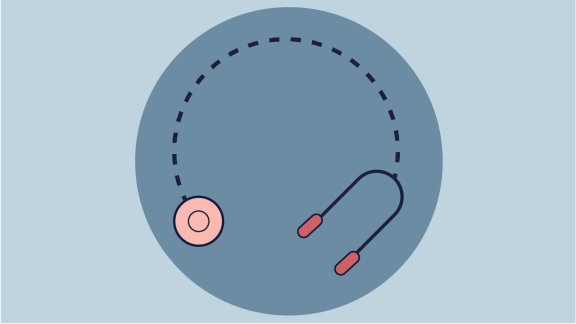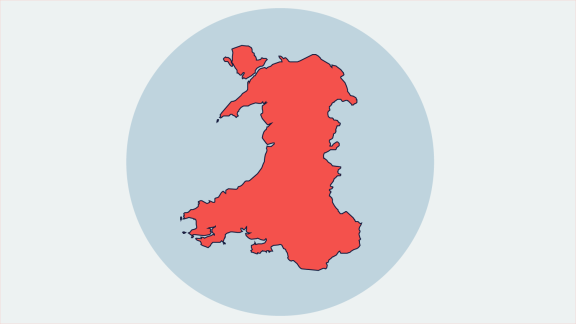How is primary care provided in Wales?

Primary care acts as the initial point of contact for individuals seeking healthcare within the NHS, encompassing a wide range of services provided by an array of health professionals. Effective primary care relies on multidisciplinary teams working collaboratively to assess needs, provide treatment and coordinate referrals when necessary, but also play a role in prevention, early intervention and wellbeing.
What is primary care?
90% of individuals’ contact with the NHS is through primary care services. Primary care is used to describe the first point of contact for people in need of healthcare, acting as the ‘front door’ to the NHS. This includes services provided by local GP practices, dentists, pharmacists, opticians and wider community teams. Community teams can include health visitors, district nurses and allied health professionals such as physiotherapists, speech and language therapists, dieticians and occupational therapists. Effective primary care relies on multidisciplinary teams; this means well-trained, agile professionals from a range of services working together as a team to make use of everyone’s skills and provide better patient care.
How is primary care delivered?
Primary care in Wales is designed to be the first point of contact for healthcare and works through a network of interconnected services:
- First point of contact: For many this is their GP practice, but it could also be a local pharmacist or another healthcare professional.
- Assessment and treatment: Healthcare professionals assess the individual's needs and provide appropriate treatment or advice.
- Referral: If necessary, individuals may be referred to specialists or other services for further care.
- Coordinated care: The primary care team works to coordinate care across different services, ensuring a joined-up approach. Primary care is the gateway to many other services.
- Prevention, early intervention and wellbeing: Primary care focuses on promoting wellbeing, early intervention and preventing diseases, as well as preventing conditions from worsening.
Who delivers primary care?
Primary care in Wales is delivered through a network of services that aim to provide accessible, community-based healthcare. Although General Practitioners (GPs) are often the first point of contact for many people, there is a wide range of staff who support and deliver primary and community care services. Community service staff include:
- Community and district midwives
- Community and district nurses
- Dieticians
- Dentists
- Health promotion teams
- Health visitors
- Mental health teams
- Occupational therapists
- Paramedics
- Phlebotomists
- Physiotherapists
- Podiatrists
- Speech and language therapists
- Social services (and other local authority staff)
People working and volunteering in the wealth of voluntary organisations that support people in the community, eg social prescribers and link workers.
Further information on the range of skills being optimised in primary and community care to meet local population needs roles can be seen on the Primary and Community Care Compendium website.
How many people access primary care services in Wales each year?
In the year 2023-24:
- Over 29 million calls were received by GP practices
- Over 18 million GP appointments took place
- Over 11 million of these were face-to-face appointments
- Over 200,000 home visits were undertaken
- Over 78 million prescription items were dispensed
- Over 14,000 medication reviews took place.
Data source: Primary Care Information Portal (DHCW)
How is primary care commissioned?
Primary care commissioning in Wales is a multifaceted process involving various stakeholders and considerations. The key stakeholders involved in the process include the Welsh Government, local health boards (LHBs), NHS Wales Improvement and Performance, NHS Wales Shared Services Partnership (NWSSP) and the Joint Commissioning Committee (JCC). They aim to ensure that high-quality, accessible and integrated primary care services are available to meet the needs of the population. To understand more about the organisations involved in the commissioning process, see our explainer on How is the NHS structured in Wales?
What is the commissioning process?
The primary care commissioning process in Wales involves several key stages:
How much is spent on primary care services?
Spending on primary care makes up roughly a fifth of the total NHS spending in Wales. As part of the Welsh Government’s funding to LHBs, they provide money for primary care services. This covers General Medical Services, Pharmaceutical Services, General Dental Services, as well as funding for a range of optometry services and some aspects of primary care prescribing and dispensing. To understand more about how the NHS in Wales is funded, see our explainer.
How has funding for primary care changed?
The proportion of expenditure for LHB secondary care has increased since 2013-14, with the proportion for LHB primary care decreasing slightly.
As highlighted in the graph, the majority of the NHS’s budget in Wales is taken up by secondary care expenditure. In 2022-23, expenditure on secondary care was 79.3% of the NHS budget, or £7.3 billion, while expenditure on primary care for the same year accounted for 18.4% of the NHS budget, or £1.7 billion.
What are primary care clusters?
Primary care clusters are groups of local health and care services that work together to improve healthcare for people in their area. There are 64 primary care clusters in Wales, which typically serve a population between 25,000 to 100,000 people. The key aim is to ensure coordination of care to promote joined up and effective services for individuals and the community.
How many clusters are there in each local health board?
The number of primary care clusters per LHB in Wales varies:
| Local health board | Number of clusters |
|---|---|
| Aneurin Bevan UHB | 11 |
| Betsi Cadwaladr UHB | 14 |
| Cardiff & Vale UHB | 9 |
| Cwm Taf Morgannwg UHB | 8 |
| Hywel Dda UHB | 7 |
| Powys Teaching HB | 3 |
| Swansea Bay UHB | 8 |
It is important to note that these numbers can change slightly over time as LHBs may adjust their cluster configurations to better meet the needs of their populations.
What are Pan Cluster Planning Groups (PCPGs) and Professional Collaboratives?
In 2023, Pan Cluster Planning Groups (PCPGs) and Professional Collaboratives (PCs) were introduced in Wales under the Accelerated Cluster Development programme.
PCPGs are the mechanisms by which representatives of clusters come together at county population footprint to collaborate with representatives of LHBs, local authorities, public health experts and planners to consider services that should only be planned at a county, health board, regional or even national level.
PCs are networks of professionals with shared expertise working together to use their unique skills to assess the needs of their local population. PCs will capture the knowledge and experience of local professionals to map service provision, identifying gaps and development needs to inform decision making and propose solutions. Working with professional peers across service boundaries helps the workforce to deliver the standards of care to which they aspire and makes it easier to advocate for their community to achieve wider system improvements.
To read more about how primary care is structured in Wales see our explainer.
Summary
Primary care in Wales is delivered through a network of interconnected services, often starting with a GP practice but involving a wide range of healthcare professionals. Primary care services are wide-ranging and involve assessment, treatment, referrals, coordinated care and prevention. Commissioning is a multi-faceted process led by local health boards who are responsible for planning, procuring and managing primary care services. These services are often delivered through primary care clusters; groups of local health providers working collaboratively.
To understand more about primary care, see our explainer How is primary care structured in Wales?



